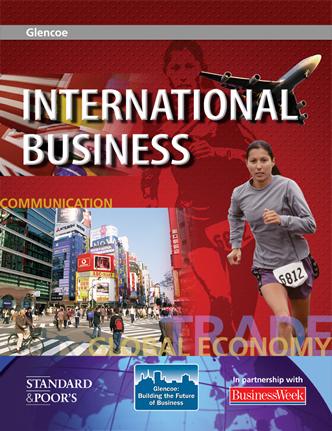
International BusinessChapter 3: International CommunicationsBusinessWeek OnlineRead this article. Then list some important factors for communicating the right name in Chinese. Entering the Chinese MarketNames are serious business in China, so here are some factors to consider when picking a suitable moniker for your product Entering China? How will your name be received? Some global brands, like Mercedes, cater to the different markets and languages, others, like Nokia, try a one-size-fits-all name. Foreign brands pondering what Chinese brand name to take for their Asian markets will invariably come across the anecdote of how Coca-Cola was initially given the catastrophic name "bite the wax tadpole," in China. This story, while largely an urban legend, only serves to makes the task seem more daunting. The task of finding the perfect Chinese name is often thus delegated to in-country counterparts, who may create a local moniker for convenient reference. The risk in this approach is that the process is oversimplified; immense opportunities may be missed in transferring the vision and values of the brand over to the Chinese name. Why All the Fuss? As the Chinese saying goes, a badly chosen name or vision will hinder all subsequent efforts to success. This may sound overly dramatic, but not if you understand the significance of names in the Chinese context. Names are a serious business in Chinese culture. Prior to the Cultural Revolution, a custom of having style names and sobriquets (nicknames), in addition to a given name, was widely practiced. Wang Dayou, a scholar specializing in Chinese name culture, speaking in the China Daily explained it like this. "Names are not simply a differentiating symbol, but a medium to pass on...culture. Other people can see a person's beliefs and pursuits in his name" (12 January 2004). Tang poet, Li Bai, for instance is also known by his style name, Tai Bai, which gives a more elegant reference to Venus, a planet believed to emit white light in dark skies. In later life, he also went by the sobriquet, Hermit of the Lotus, reflecting his devotion to Taoism (the lotus being the symbol of Taoism). In the same way, your Chinese brand name is an embodiment of your brand's culture, values, personality and vision. Care should be applied in transferring valuable equity over from the English brand name. The Complexity in the Simple Everyone knows the brief: to find a Chinese brand name that is pronounceable, free of negative connotations, and not confusingly similar to existing names. While this is already a mammoth undertaking, there are also other considerations: Meaning vs. phonetics Names generated under each route will have distinct styles and impact. Phonetical names tend to sound more formal, and sometimes more distant; this tone of voice is more suitable for some industries, such as professional services and finance, than others. It's impossible to say which is the better route, or if a combination of both will yield the best results. Clearly, this will depend on the nature of your product, or industry, as well as, the importance of linking the Chinese brand name to the English name. Meeting the differing needs of markets in Asia French brand, Biotherm, for example, goes by the Chinese name, 碧儿泉 (pronounced bee-er-chuen), in most Asian markets with the exception of China. China's cosmetic market is dominated by foreign brands; as such, Biotherm highlights its international status with the name, 碧欧泉 (bee-oh-chuen), instead, where the middle character, 欧 (oh), refers to Europe. Balancing regional linguistic preferences These diverging preferences have led some brands to adopt different names in different markets, based on local preferences. Mercedes-Benz is known by three Chinese names in Asia: 平治 (pronounced peng zee in Cantonese) for Hong Kong, 朋驰 (peng chi in Mandarin) in Taiwan and 奔驰 (ben chi in Mandarin) for mainland China. This may have been viable strategy in the past when each market was managed distinctly from one another; however, in a fast converging marketplace, it poses an issue for brand management and may cause confusion as customers are required to refer to the brand differently in different market contexts. Increasingly, foreign brands are investing more time and effort in finding a Chinese name that can be used in all markets, such as Nokia has with its Chinese name, 诺基亚(pronounced nuo jee ya in Mandarin).Finding the Right Fit As with all brand names, Chinese or otherwise, comfort comes with time. The brand name is but one of the elements that make up a brand; good marketing and communications may make up where the name falls short. However, for established brands, it's a rare chance to spruce up an image and cater more closely to the beats of a new economy. It's an equally rare opportunity to make a brand name work harder. By Doris Ho Copyright 2000–2006 by The McGraw-Hill Companies Inc. All rights reserved. |  |















